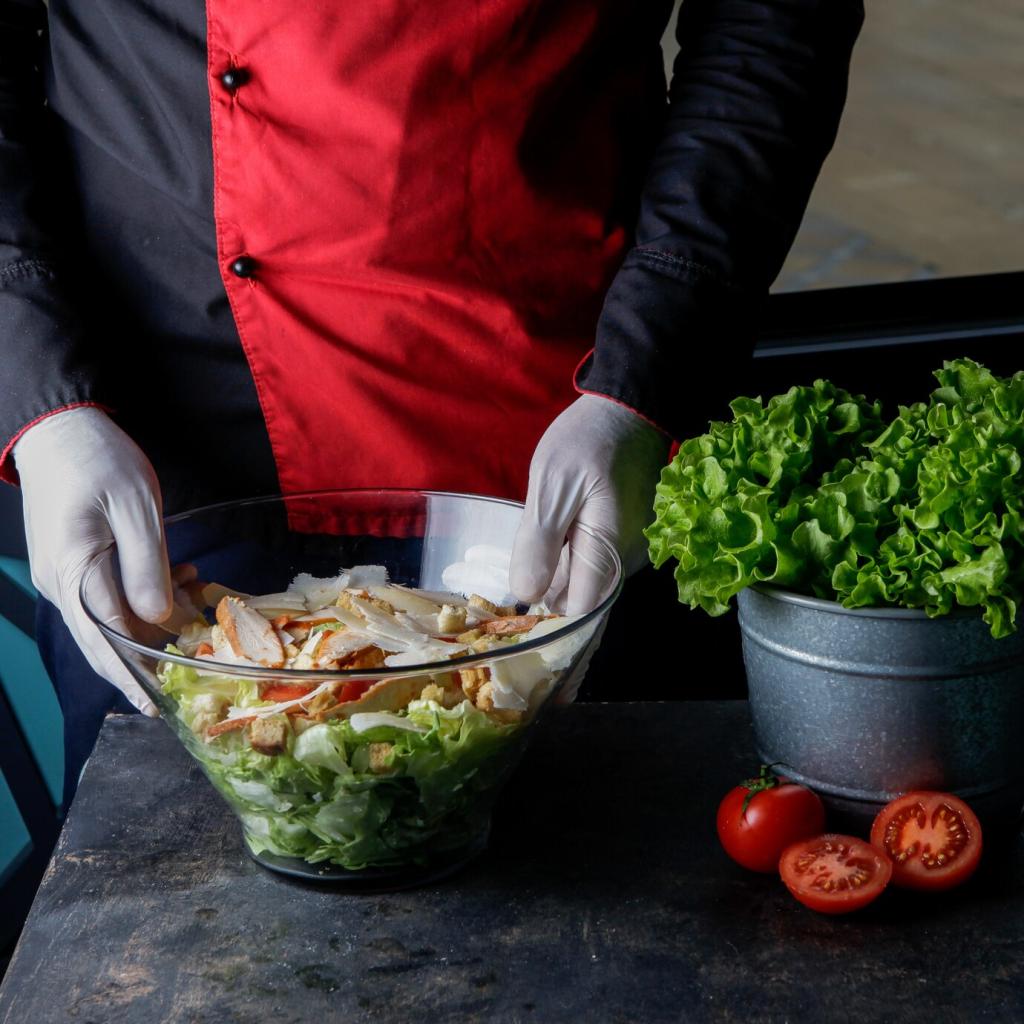Smart Appliances: The Next Generation of Culinary Tools
The modern kitchen has undergone a technological revolution, with smart appliances redefining the way we approach cooking, meal preparation, and home management. These next-generation culinary tools combine advanced sensors, artificial intelligence, and connectivity to deliver unmatched convenience, precision, and control. Whether you’re a professional chef or a home cook, smart appliances are poised to enhance your culinary experience and transform mealtime into a seamless, enjoyable activity.
The Rise of Intelligent Kitchens
01
Connectivity at the Core
The backbone of smart appliances lies in their ability to connect seamlessly with one another and with the internet. Wi-Fi and Bluetooth-enabled devices not only communicate within your home ecosystem but also offer the possibility to monitor and control appliances remotely using smartphones or voice assistants. This connectivity empowers users to start, pause, or modify cooking cycles from any location, receive notifications about appliance status, and even access recipe suggestions tailored to what’s already in their pantry. Ultimately, this level of interconnectivity is transforming the kitchen into a responsive, user-friendly space.
02
Enhanced Precision for Better Cooking
Gone are the days of overcooked meals and inconsistent results. Smart culinary tools leverage precise sensors and automated settings to ensure perfect outcomes every time. Many smart ovens, for instance, use temperature probes and machine learning algorithms to detect doneness and automatically adjust cooking settings. Such precision removes guesswork, allowing even novice cooks to produce restaurant-quality dishes. With enhanced control, users can confidently experiment with new recipes, knowing that their appliances provide consistent support throughout the cooking process.
03
Streamlined Meal Preparation
Smart appliances are designed to reduce manual effort and save valuable time in the kitchen. Features like automated grocery tracking, meal planning, and ingredient management simplify the groundwork for daily meals. Integrated screens or mobile apps guide users through step-by-step recipes, suggesting suitable settings and even automatically controlling ovens or cooktops as needed. This seamless integration not only accelerates meal prep but also lets users focus on creativity and enjoyment rather than mundane chores.
Key Features Redefining Smart Kitchen Appliances
Adaptive Cooking Programs
Modern smart ovens, cooktops, and other appliances come with built-in adaptive cooking programs. These features allow the appliance to sense the type and quantity of food being prepared and automatically adjust time, temperature, and mode to ensure optimal results. By analyzing cooking progress in real-time, these programs minimize the risk of undercooking or overcooking and can adapt to users’ preferences over time. For busy families or those exploring new cuisines, adaptive cooking removes the guesswork and delivers consistent meals that satisfy every palate.
Personalized User Experiences
Personalization is at the heart of next-generation culinary tools. Smart appliances learn user habits, favorite recipes, and timing preferences to recommend tailored options and reminders. Whether it’s suggesting a meal plan based on dietary goals or recalling your preferred coffee strength, these systems adapt continually to enhance your experience. Personalization goes beyond convenience; it fosters a deeper connection between the user and the appliance, encouraging healthy choices, reducing food waste, and ultimately making cooking a more enjoyable pursuit.
Energy Efficiency and Sustainability
Efficiency is another hallmark of smart kitchen technology, with many appliances featuring energy-saving modes and intelligent resource management. Connected systems can optimize power consumption based on real-time usage and even integrate with renewable energy sources when available. Features like scheduling, remote monitoring, and automation contribute to significant cost savings over time. Moreover, environmental benefits are achieved by minimizing energy waste, promoting sustainable consumption, and extending product life cycles through intelligent maintenance alerts.
The Role of Artificial Intelligence in Culinary Innovation
AI-enabled smart appliances can suggest recipes tailored to available ingredients, dietary restrictions, and even user moods. By analyzing patterns in your cooking history and monitoring grocery inventory, these systems present curated meal ideas that save time and minimize food waste. AI-driven recommendations evolve with usage, continually refining their suggestions and introducing new dishes to diversify users’ culinary repertoire. Ultimately, intelligent guidance turns meal planning into an inspiring, personalized process rather than a daily challenge.
At the foundation of next-generation culinary tools is their ability to learn from each interaction. AI-powered devices analyze feedback from users—such as preferred doneness levels, spice preferences, and even how frequently certain dishes are cooked—and tweak their operations accordingly. This adaptive learning ensures that appliances become increasingly aligned with user expectations, offering a more tailored and satisfying cooking experience over time. The more you use these devices, the more intuitive and helpful they become, making each meal a little better than the last.
AI doesn’t just simplify everyday cooking; it also empowers users to tackle more complex recipes and techniques with ease. Smart appliances can automate intricate processes, such as proofing dough, sous vide cooking, or precise temperature adjustments for delicate sauces. These capabilities allow both novice and experienced cooks to achieve professional-grade results without extensive training or supervision. As a result, complex meal preparation becomes accessible, demystifying gourmet cooking and expanding what’s possible in home kitchens.

